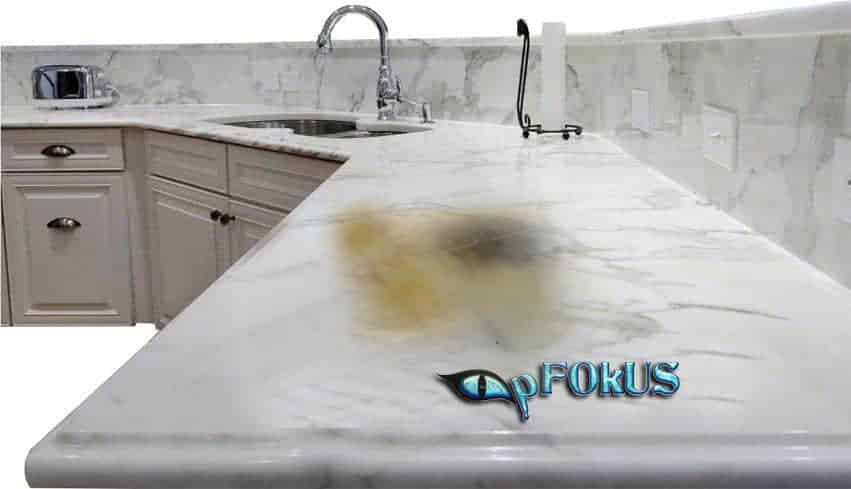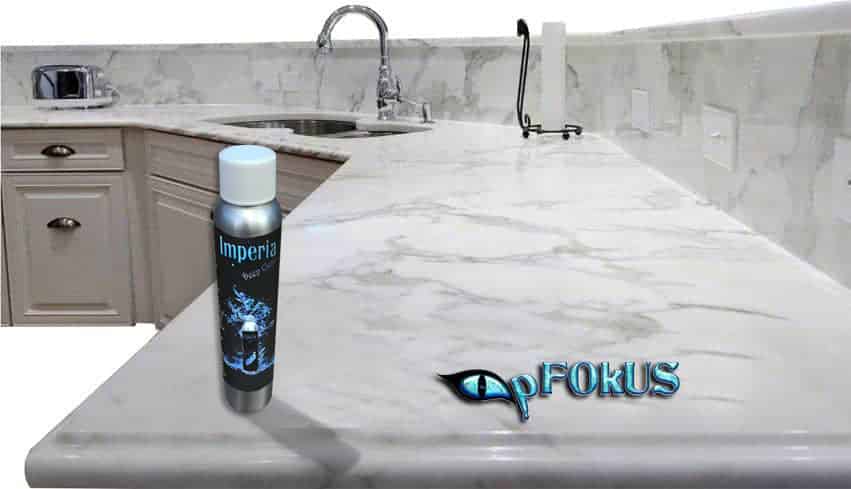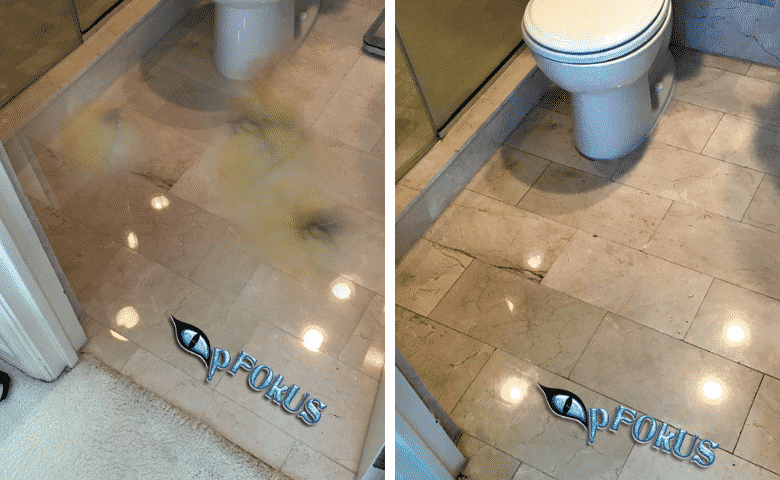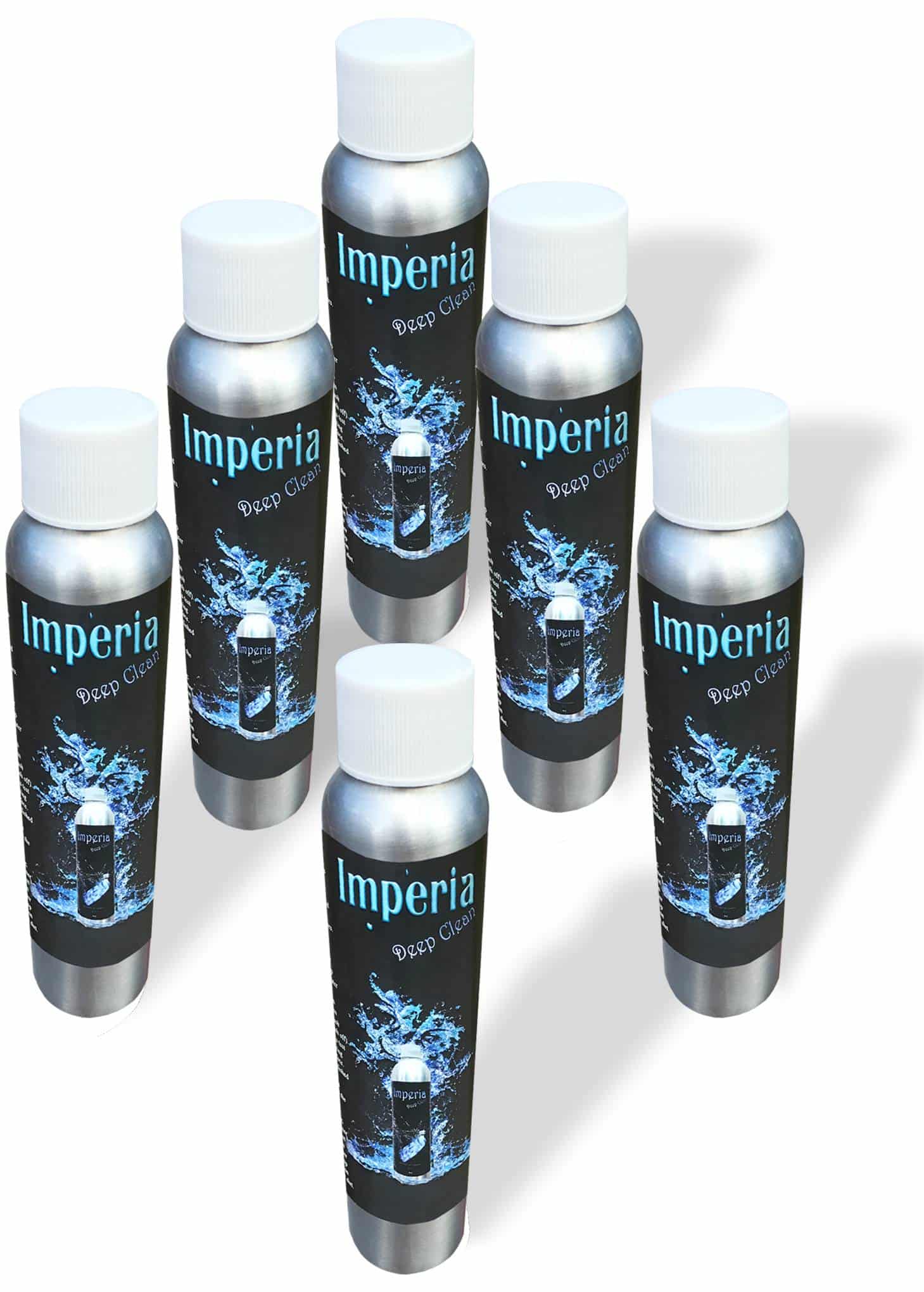How to Remove Rust Stains from Natural Stone Surface?
Rust is often seen on steel, iron and stone. It develops on just any surface which has iron deposits....
Rust is an inevitable occurrence that tends to damage our tile, stone, metal fittings and many other hard surfaces. It not only looks disgusting, but also damages and weakens the structure from within. If your marble tile is showing signs of rust formation, then you must act quickly. Here are some ways to remove marble rust stains.
Before we learn how to remove marble rust stains, let us understand in-depth about rust and the reason for its occurrence.

Rust is a layer of iron oxide, typically brownish-red in hue, that is formed because of the chemical reaction of iron and oxygen in the presence of moisture. Rust easily occurs on surfaces made from iron, steel or stone as they have iron deposits. These iron deposits react with oxygen in the air in the presence of moisture, and form a layer of iron oxide that settles on the surface. It appears like a rust-like powdery substance on the surface which easily transfers to your fingers when touched.
If you ignore this rust on your stone surfaces, it gradually increases and spreads on the entire surface especially at the root level. It begins to weaken the structure and deteriorate it, causing it to break or wither. Rust formation occurs more in humid conditions.
When the marble tile is exposed to humid air or water, the iron deposits hidden in the stone start reacting with the oxygen in the air/start to oxidize. This reaction results in a yellow-brown-reddish stain on the marble tile. This happens more in marble bathrooms, showers, marble countertops or pool areas. These areas are often exposed to humid or wet conditions and hence, oxidation is bound to happen.
The consequences of ignored rust formation on marble tile can be very grave. When rust formation begins, you need to understand that the iron deposits on your marble tile can weaken the structure from within. Not only does rust have a very dirty and disgusting appearance on your precious marble tile, but it also starts eating the stone from within, leading to leakages, mold and mildew breeding and weakened flooring.
If you do not act quickly, rust stains in a shower will spread on your walls, tap and metal fittings and on every corner of your shower. Similarly, rust stains on the kitchen floor can spread to the nearby cupboards, walls and other metal fittings. Rust stains on the pool floor are most common because of the constant exposure to water. These stains start disintegrating the tiles and their sharp and rusted edges can hurt anyone walking bare feet on the pool floor.
There are many rust stain removers available on the market that claim to remove these stains easily. But, many of such removers are also acidic, which lead to etch marks on your stone. Many of these commercially available cleaners do not deliver what they claim. It is tough to find the right product capable of removing marble rust stains.
Of the many products available on the market for rust removal, Imperia Deep Clean from pFOkUS is a good choice. It is a very effective and deep-penetrating alkaline cleaner that efficiently soaks into the pores and knocks off all traces of mold, mildew, stains and rust from the root. It easily eliminates iron deposits, soap scum, grease, stains, etc from the marble stone tile, making it squeaky clean and sparkling.

Imperia Deep Clean has a deep-penetrative action that causes it to soak deep into the porous surface of tile and grout. Once inside the pores, it eliminates all traces of rust, stains, mold and mildew. It sticks all these stains to its chemical structure and easily gets rid of them from the surface, thereby thoroughly sanitizing the surface. Not many cleaners available on the market have a deep-penetrative action. Hence, it is the best cleaner for deep cleaning.
A major plus point of Imperia Deep Clean’s chemical formulation is that it is alkaline and not acidic. With an alkaline pH balance, this cleaner does not cause any harm to the tile and grout structure. It does not rob off your marble tile of its sheen, softness and beauty. It is one of the few marble tile-approved cleaners.
Many neutral or alkaline cleaners available on the market are also very mild. They are hardly sufficient to remove stubborn stains or grease marks. Imperia Deep Clean, in spite of having an alkaline formulation, is also very powerful. It has a robust cleaning action, owing to its incredible chemical formulation, that it easily removes all kinds of stains. If the stains are too dense, it is recommended to use it twice on the same surface to remove the stains thoroughly. You might have to use it twice on a highly-rusted marble tile to remove the rust stains as well as to clean the tile.
It is a deep cleaner in the true sense, as it does not only clean superficial stains like many other commercial cleaners available on the market. This makes it a perfect pick for rust stain removal as rust stains are often deep-rooted.
Although it has a powerful concentration, Imperia Deep Clean is not hazardous. For safety’s sake, we recommend the user to wear gloves and eye goggles during use, but this product does not release any harmful fumes that may harm the user. Moreover, it has a biodegradable formulation and is absolutely eco-friendly.
As the cleaner is not acidic, one need not worry about discoloration on the marble tile. Many cleaners available on the market cause your marble tile to lose its original color. Imperia Deep Clean will retain the integrity and beauty of your tile.

Imperia Deep Clean from pFOkUS – one of the best restoration products manufacturing companies in the US, is the best solution for removal of marble rust stains. Here is the procedure to use the cleaner:

$39.95
Follow the above-mentioned steps to use Imperia Deep Clean to remove marble rust stains.
Only cleaning the stains from marble tile, will not guarantee that the stains will not reoccur. As marble is a porous stone, rust, stains, mold and mildew will recur easily. You need to seal the surface properly to prevent rust formation again.
Sealing also has to be done in a step-by-step procedure. First, you need to seal the grout between the marble tile, as it is porous too. You can use our Caponi – epoxy grout sealer to seal the grout. Next, you should seal the entire marble tile using Celine – incredible clear resin sealer that delivers a natural look.
Sealing will prevent marble rust formation again and your marble tile will retain its beauty and luster for long. If you feel that performing these cleaning and sealing tasks yourself are too overwhelming, you can hire D’Sapone – a leading restoration service provider in the US to do it for you.